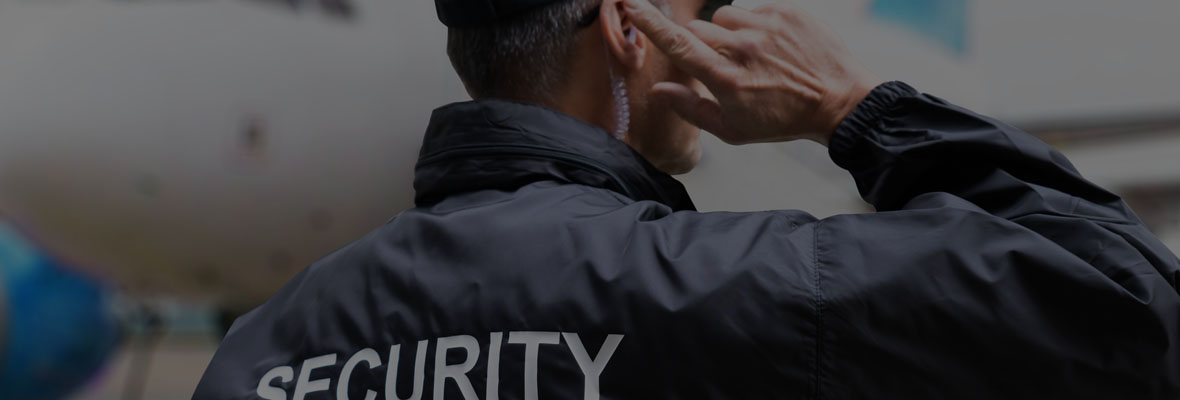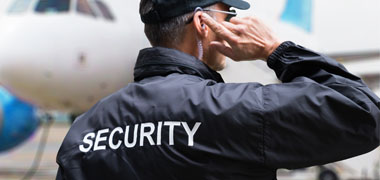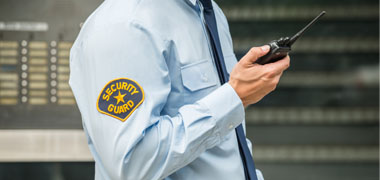Choosing a security licence course in Australia: A step-by-step guide for jobseekers
Written by Melinda Irvine
29th August 2024
Are you curious about working in the security industry? You are in the right place. There is a growing demand for confident and well-trained security guards in every part of Australia and this detailed guide unpacks the skills and qualifications you’ll need to get a job. We even have direct links to security licence courses in your area if you’re keen to get started today.
And if you’re just browsing around that’s ok too, because we have one of the largest networks of online courses in Australia. Either way, you’ll find a plethora of reliable information that will help you decide if the security industry is the career path for you. Let’s go.
1. Working in Security
Have you ever wondered who works in security? You might be surprised to learn that it’s not just big guys who pump iron and know kung fu. Sure they have their place on the roster, but the most effective guards are confident communicators who can diffuse challenging situations with negotiation tactics rather than force.
Australian security guards protect people, workplaces and construction sites, buildings and public places from fire, vandalism, accidental damage, and violence. They hold specialist qualifications and have been properly trained — so they know how to spot irregularities like fire hazards and broken water pipes, and they know what to do when they see suspicious behaviour and people who are intoxicated.
With the right training, almost anyone can become a security guard. Even you.
Flexibility and Earning Capacity
Many people are attracted to the security industry because guards mostly work on a 24/7 rotating roster. Working nights and weekends attracts a lot of penalty rates and overtime so it’s an occupation that is especially great for:
- Young mums and dads (married or single) who want extra cash to support their family, but need flexible hours.
- International students who want a job that pays well, but will fit in with their study commitments.
- New graduates and school leavers looking for a dynamic career with plenty of scope for advancement.
DID YOU KNOW? When you work in security you’re part of a close-knit team who look out for each other. There are plenty of opportunities to become supervisors and team leaders — you could even start your own security company or work with guard dogs.
2. Australian Security Sector Job Prospects
The security industry in Australia is a growth sector with more than 61,000 security officers currently employed across the country. Even better, job opportunities are expected to increase over the next five years with thousands of new jobs emerging for licensed security guards.
Whether you live in a large city like Sydney or Canberra, or smaller cities like Geelong, Newcastle, and Townsville, once you complete an approved security course and obtain your licence, you’ll have plenty of jobs to choose from. Here’s just a few possibilities:
Security Officer
Australian security officers patrol and monitor activity at commercial properties, industrial estates, sports grounds, railway yards, historic buildings, and a wide range of public facilities. They usually work as mobile or static guards.
Mobile guards operate from a vehicle, conducting status checks and responding to alarm triggers, while static guards are assigned to a single property or screening point in a building.
Crowd Controller
Crowd controllers are the security guards you encounter at pubs, clubs, hotels, music festivals, sporting events, political rallies, and large functions. They regulate entry and exit points, patrol premises (indoors and outside), and monitor the behaviour and intoxication levels of patrons.
Cash-in-transit Guard
Cash-in-transit guards are the officers you see getting out of armoured trucks and overseeing the clearance of ATMs. They are assigned to banks, department stores, jeweller’s shops, shopping malls, licensed venues, and workplaces that carry cash and valuables.
Guard Dog Handler
Security dog handlers are accompanied by their faithful K9 companions and may carry out perimeter checks on large worksites, search buildings, patrol sports grounds, apprehend offenders, and remove trespassers. A big part of their role is assuming responsibility for their dog’s health, wellbeing, and ongoing training.
CCTV Operator
Also known as surveillance guards, CCTV Operators work behind the scenes monitoring live CCTV footage and alarm systems for anomalies and criminal activity. They respond to alarm triggers, notify supervisors and emergency contacts, and ensure the security system is fully armed and operational.
Bodyguard
Bodyguards are mostly known for shadowing celebrities, executives, politicians, and VIPs but they are also assigned to protect money handlers, court witnesses, and victims of domestic violence. They escort their clients to public places and sometimes stay at their homes, businesses, or safe house accommodation.
Armed Guard
Armed guards have specialist skills and weapons training and may be assigned to patrol and protect prisons, courts, correctional services facilities, armoured vehicles, cash-in-transit operations, politicians and VIPs.
3. Choosing a Security Course
To work in security you’ll need to complete a nationally recognised training course that is recognised by the security licensing authority in your area. Taking a security course is lots of fun because the training is very hands-on and you will make a lot of friends too.
You can choose face-to-face or blended learning (ie, online modules + workshops in the classroom) and you can have your security course finished in as little as 10-15 days. We’ve listed the most popular security courses below, with information about the actual jobs you can get when you graduate.
Certificate II in Security Operations
This course is the minimum standard for crowd controllers and unarmed guards working in Australia. The Certificate II is recognised Australia-wide and is an excellent way to get started in security because once you have your qualification, you only have to complete add-on skillsets to obtain different security licences.
Certificate III in Security Operations
You’ll need a Certificate III to work as a Guard Dog Handler, Cash-in-Transit Officer, or Surveillance Guard. Each of these job roles requires specialist electives, so talk to your training organisation before enrolling to make sure you select the right study units.
Certificate III in Close Protection Operations
Grab this qualification if you want to work as a bodyguard and provide specialist security services to individual clients and VIPs.
Certificate IV in Security Management
This qualification develops your leadership skills and will teach you how to manage field staff activity and incident response from a control room. This course is a must-have for aspiring event supervisors, security team leaders, control room managers, and business owners.
Provide First Aid
You must have a current first aid certificate to obtain a security licence. First Aid certificates must be renewed every three years.
Advanced First Aid
Some security guards, such as bodyguards, armed guards, and dog handlers, need an Advanced First Aid Certificate. Advanced First Aid remains active for three years.
Responsible Service of Alcohol (RSA)
Having a current RSA certificate is essential for crowd controllers and guards who work on licensed premises and may encounter intoxicated patrons. RSA expiry dates vary between states and territories.
Other courses
Depending on your career aspirations you can also complete specialist skillsets in Firearms and Weapons Safety, Batons and Handcuffs, and Bodyguard training. Again, talk to the RTO (registered training organisation) before enrolling to ensure your enrolment choice matches the job you want.
DID YOU KNOW? Some Australian states and territories offer government funded security courses to students. Ask your training provider before enrolling about your eligibility for a government subsidy to reduce the cost of your security course.
4. Getting a Security Licence
Remember back in section 2 when we listed some of the actual job roles in the security industry? Well, each of those occupations (eg, crowd controller, bodyguard, cash-in-transit officer, armed guard) relates to a different class of security licence. In Australia, you need a government-issued security licence before you can start working.
Here are the essential steps in getting a security licence, remembering the process is slightly different in each state and territory.
Step 1 - Decide where you want to work
It’s important that you decide from the get-go where you will be applying for work because Australian security licences cannot be transferred between states or territories. For example, if you hold a NSW Security licence and you move interstate to Victoria, you’ll have to get a whole new licence.
Step 2 - Check your eligibility
Make sure you’re eligible to hold a security licence before investing your time and money. As a minimum, you must be:
- Over 18 years.
- An Australian citizen or permanent resident or NZ citizen or holder of an approved working/study visa.
- Physically and mentally fit enough to carry out the duties specified on your security licence.
- Of good moral character — ie, no criminal record.
Step 3 - Complete your training
Now enrol in a security course and get yourself the appropirate first aid certificate. We recommend googling ‘Get a security licence [state or territory]’ and checking the specific course requirements for each class of licence.
Once you know the course you need you can check the security courses that are currently open for enrollment right here on our website, or do a general search using the phrase security license course near me.
When choosing a course provider make sure they are a fully Registered Training Organisation (RTO) and the course is recognised by the licensing body in your state. This is really important, so take the time to ask.
Step 4 - Gather your documents
After you finish your course you’ll need to gather a series of documents to submit with your application. These include:
- Identity documents — photo ID documents that fulfil the 100-point requirements (eg, driver’s licence, passport, medicare card).
- Training documents — a nationally recognised statement of attainment that lists the name and code of each of the study units you completed. This includes your security course and first aid courses.
- Police clearance** — if you have spent more than 12 months overseas in the past 10 years, you may be required to submit an overseas police clearance from each country where you lived.
- Visa documents** — if you are not an Australian citizen or permanent resident or NZ citizen, you may need to submit your current work or study visa.
- Passport photographs** — some states (eg, Queensland) require you to submit passport photos with your application.
DID YOU KNOW? In some states, you need to have your documents certified by a Justice of the Peace, Lawyer, or Notary Public. Check this out before lodgement because you don’t want your application to be delayed.
Step 5 - Lodge your application
If you have all your documents on hand you are ready to apply (and pay) for your security licence. You can do this online, in person, or by mail. The system is different in each Australian state/territory so we’ve provided the following links to help you along:
- New South Wales (NSW)
- Australian Capital Territory (ACT)
- Victoria (VIC)
- Tasmania (TAS)
- South Australia (SA)
- Western Australia (WA)
- Northern Territory (NT)
- Queensland (QLD)
REMEMBER! Application fees are non-refundable, so make sure you’re eligible for a security licence before applying.
Step 6 - Wait for your interim approval
Your security licence can take 6-8 weeks to be approved. This is because the state licensing authority will carry out a national police check as well as cross-checking your details with international law enforcement agencies.
Step 7 - Arrange your fingerprinting (and photo)
Once approved, you’ll be notified by mail and asked to attend an approved police station to be photographed and fingerprinted. You usually have to book an appointment in advance and you must take your approval letter as well as photo ID.
Step 8 - Receive your security licence
Now all you have to do is wait for your security licence to arrive in the mail. Processing times vary between states but you can expect your licence after about 10 working days.
Security licenses in Australia are valid for 1-3 years (depending on the issuing authority) and will need to be renewed before they expire.
5. Finding a Job as a Security Guard
Once you have your shiny new security licence you can update your resume and start applying for jobs. There are nearly always vacancies for security guards on job search sites like Seek, Indeed, CareerOne and Adzuna, but you can also apply directly with security firms and recruitment agencies.
Hospitality establishments like clubs, hotels, resorts, and taverns often hire their own guards in-house. And you can also check the websites of city councils, prisons and corrective service facilities, schools, universities, and hospitals — in fact anywhere you see a security guard on duty is somewhere you could work too. There is no harm in asking.
Attending a job interview
If you are called for an interview be sure to present yourself professionally, paying attention to your shoes, hair, jewellery and overall attire. During the interview:
- Be clear on your availability, the hours you are willing to work, and when you can start. Security is a 24/7 occupation so you’ll limit your employability if you’re only available on weekdays or are wishy-washy about a starting date.
- Let the recruiter know you’re committed to following SoPs (standard operating procedures) and that you’re a reliable team player who won’t compromise company standards.
- Provide some examples of how you’ve dealt with difficult situations in the past, that also demonstrate you have good communication skills.
Even if you have no experience as a security guard you can still get a job. It’s a growth occupation and there are thousands of opportunities out there. Upskill by taking courses in Responsible Service of Alcohol (RSA), conflict resolution, defensive tactics, or leadership, and talk to other guards to find out how they got their first job. Working in security is a flexible and dynamic occupation and all you need is a Certificate II in Security Operations to get started.
DID YOU KNOW? We have an extensive library of articles and blog posts with up-to-date and reliable career information across all industries and employment sectors. Check it out today for the latest updates on your dream job and the courses you need to make it happen.







